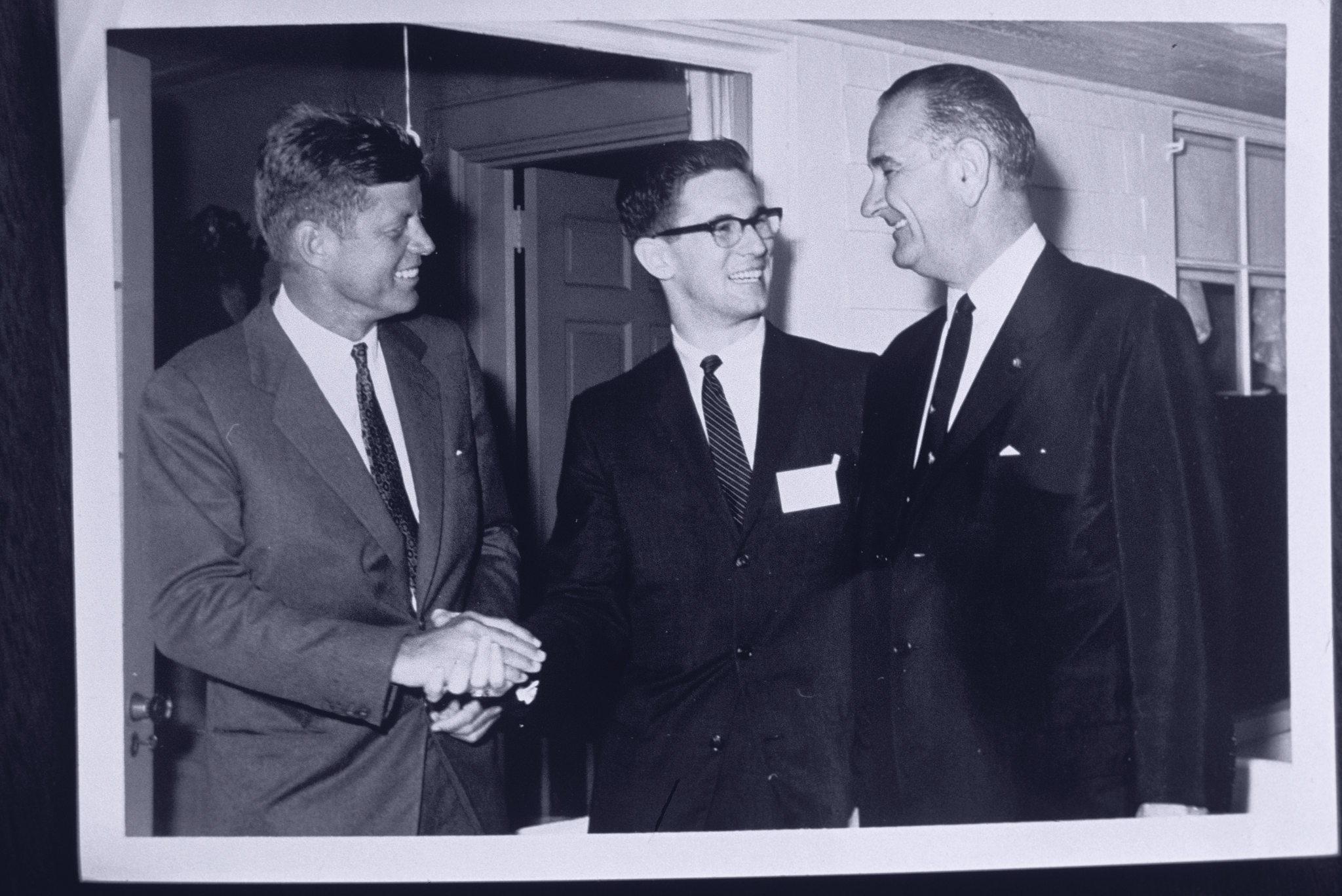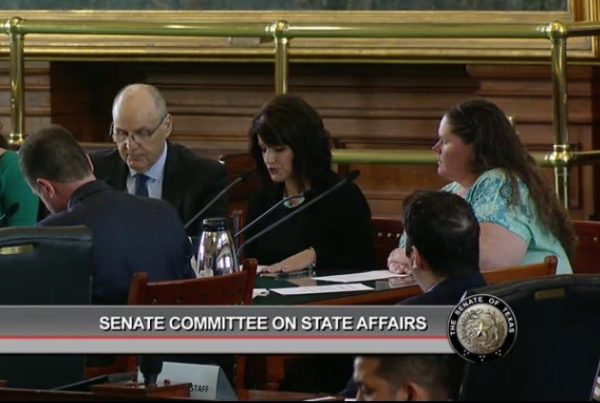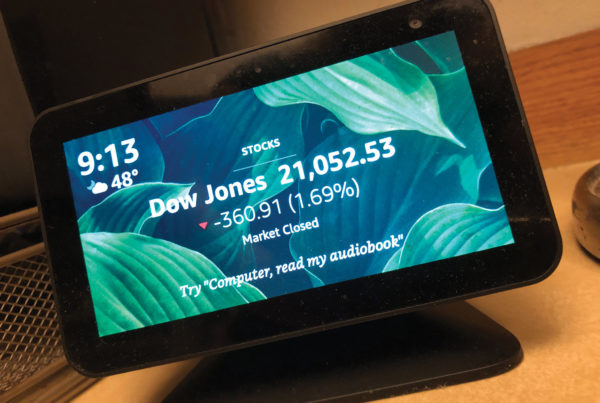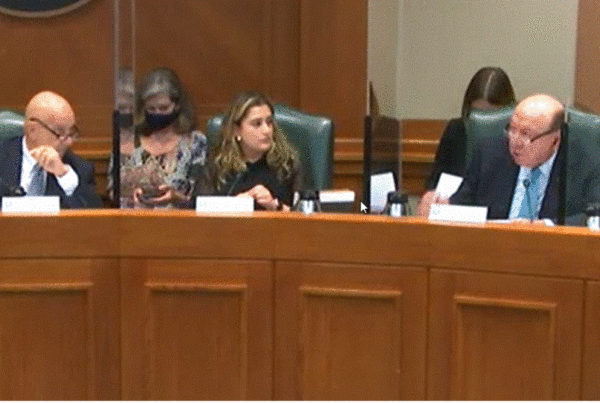Longtime journalist Neal Spelce was present for many significant moments in history. Those from the Texas capital city might best remember him for broadcasting live during the 1966 UT tower shooting.
Spelce interacted with six U.S. presidents. He worked especially closely with Lyndon B. Johnson, occasionally finding himself at the wrong end of LBJ’s temper and unique brand of humor and brashness. In his memoir, Spelce shares those stories but also tender, behind-the-scenes moments like his time on a bass fishing boat with both George H.W. and George W. Bush.
“With the Bark Off: A Journalist’s Memories of LBJ and a Life in the News Media” is available now. It also comes as an audiobook complete with historical clips and clips from Spelce’s own collections.
Listen to the audio player above or read the transcript below.
This transcript has been edited lightly for clarity.
Texas Standard: What took you so long to write down these stories?
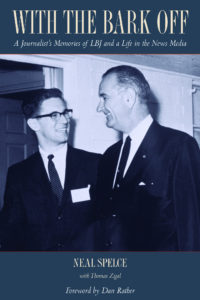 Neal Spelce: Everybody’s asking me that. For years, they’ve been saying, you know, we’re sitting around having drinks over dinner or something like that, and I start telling these stories and they say, “Spelce, you’ve got to write that down, you’ve got to grab that.” And so finally, finally, a very influential person said to me, “Neal, you have an obligation to put this down.” And I said, “Oh, oh, wow, I haven’t thought about it like that. I thought it was just ego.” And it took off from there.
Neal Spelce: Everybody’s asking me that. For years, they’ve been saying, you know, we’re sitting around having drinks over dinner or something like that, and I start telling these stories and they say, “Spelce, you’ve got to write that down, you’ve got to grab that.” And so finally, finally, a very influential person said to me, “Neal, you have an obligation to put this down.” And I said, “Oh, oh, wow, I haven’t thought about it like that. I thought it was just ego.” And it took off from there.
Your journalism career began in 1956 at the Austin TV station that LBJ’s family owned. But working at a TV station owned by the Johnson family and becoming a confidant of the family, are obviously two very different things. How did it come that you became so close with the Johnsons?
You know, I’m not so sure what triggered it, except this: that, one, I had a great deal of respect for them and their hands off running of the television news department. I had free rein, whatever story I wanted to cover, we covered it. I never got an order, “Do this, don’t do that, kill that story.” You know, I ran stories that were not favorable to the Johnson family and I never heard from them. In fact, Time magazine called me one time after a story broke about a confidant of LBJ’s, Walter Jenkins, was arrested in Washington, D.C. He was a very valued staff member… And even though the subject matter concerned the owners of this station, that didn’t stop us from covering the news as it was.
Your coverage of the UT tower shooting is always going to be a part of everything written about you in the future, I reckon. How do you how do you feel about that?
Well, first of all, it was certainly a history-making incident, and we won a lot of awards. I was proud of the work that we did, even though it was a very tragic, very tragic situation. And to be identified with it, well, that’s what it was. I can’t quarrel with that. So over the 50 some odd years since then, you know, I get calls and talk about it and put it into context — it was the first mass school shooting anywhere. And so we didn’t have any yardstick to use in the way of coverage. That story has retained its relevance because it was captured on film, live as it happened outside in the open. It not only was the first but it was the first that illustrated what happened and how things like that took place.
Were there things that you wanted to draw attention to that perhaps were lesser known?
Well, yes. In fact, I became convinced that, first of all, it’s a book, audiobook about politicians, not about politics. I came to understand the foibles and the personalities of the people who were in the news, and I wanted to kind of convey that because they’re human beings, and no matter if you agree or disagree with them, they’re human beings and they have these stories about themselves that people tend to overlook or never know. You put George H.W. Bush and George W. Bush in a bass boat with just me, the three of us, fishing for over an hour and capture the father-son relationship. I mean, they loved each other. They had fun with each other. They would kid each other. And I thought, man, this is something that needs to be captured. You don’t see that when you read the stories in the headlines and that sort of thing. So, yeah, I wanted to convey the humanness of what was going on in this world of news and in this world of politics.


